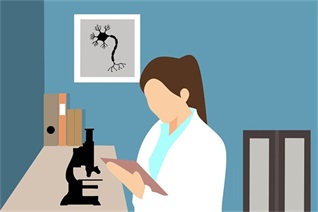武汉大学网络教育成考专升本入学考试英语模拟试题
2021-10-17 15:17
武大网络远程教育成人专升本入学考英文模拟试卷:
The winter in Iceland has been one of the worst ever. An animal that was born in Iceland and just returned there has enjoyed the weather. Keiko is a killer whale who is now living in a hidden bay.
When Keiko was one or two years old, he was captured. This was in 1979. In 1982 he was moved to an amusement part in Ontario, Canada. Three years later another park took him to Mexico City. There, the 6.4-meter (21-foot) whale lived in a small pen with water that was too warm. In 1993 the "Free Willy" movie made people aware of his state. In 1996 the Free Willy Keiko Foundation moved him to a pool in an aquarium in Newport, Oregon.
The foundation has spent over $12 million to return Keiko to Iceland, his home. Late last year the 40,000-pound (18,100-kilogram) whale was flown on a C-17 transport plane to pen near the Wesman Islands.
Critics thought Keiko would suffer in the cold water. Instead, he is enjoying the cold and becomes more active. He likes to jump out of the water to get sprayed by the salt spray. Since his return, he acts more like a wild whale. He pes more often, eats more live fish, and is more active.
Keiko still isn’t ready to go out alone into the open sea. Trainers hope to put him in a larger bay. They also hope to train him to follow a boat. They don’t know what Keiko will do when he meets other sea animals. So far the only animals who have come near Keiko’s cage left when they saw him.
They would like to let Keiko free this summer. No one knows if he will be ready. If he isn’t, the Keiko Foundation is ready to take care of him. It will cost about $1 million a year.
1. Critics thought that Keiko would ._.
A. die from the cold water in Iceland
B. be happy to return home
C. want to be free
D. be less active
2. Keiko has ._.
A. enjoyed being with other sea animals
B. killed other sea animals that have come into his pen
C. had limited contact with other sea animals
D. is ready to go to the open sea
3. This summer trainers hope to ._.
A. give Keiko a freedom in the wild
B. immediately set him free
C. move him to another aquarium
D. still keep him in the cage
4. If Keiko can’t adjust to the wild, the foundation ._.
A. will set him free anyway
B. will bring him back to the United States
C. will take care of him for the rest of his life
D. won’t be able to take care of him
Many people catch a cold in the springtime and/or fall. It makes us wonder.., if scientists can send a man to the moon, why can’t they find a cure for the common cold. The answer is easy. There are literally hundreds of kinds of cold viruses out there. You never know which one you will get, so there isn’t a cure for each one.
When a virus attacks your body, your body works hard to get rid of it. Blood rushes to your nose and brings congestion with it. You feel terrible because you can’t breathe well, but your body is actually "eating" the virus. Your temperature rises and you get a fever, but the heat of your body is killing the virus. You also have a runny nose to stop the virus from getting to your cells. You may feel miserable, but actually your wonderful body is doing everything it can to kill the cold.
Different people have different remedies for colds. In the United States and some other countries, for example, people might eat chicken soup to feel better. Some people take hot baths and drink warm liquids. Other people take medicines to stop the fever, congestion, and runny nose.
There is one interesting thing to note–some scientists say taking medicines when you have a cold is actually bad for you. The virus stays in you longer because your body doesn’t have a way to fight it and kill it. Bodies can do an amazing job on their own. There is a joke, however, on taking medicine when you have a cold. It goes like this:
If takes about one week to get over a cold if you don’t take medicine, but only seven days to get over a cold if you take medicine.
1. The reason that scientists cannot cure a common cold is ._.
A. we don’t know how we get cold
B. we aren’t sure the exact kind of cold viruses
C. we don’t know when we will catch cold
D. we aren’t sure the exact scientific method
2. When we catch cold, how does our body work hard?
A. Our runny nose stops our breath.
B. Our temperature rises to make us feel miserable.
C. Our blood rushes into our cells.
D. Our nose, fever, and blood work together to kill virus.
3. Scientists say when we catch cold, ._.
A. taking medicine
B. seeing a doctor
C. leaving it to your body
D. making a joke to your friend
4. The joke means taking medicine ._.
A. is better than not taking it
B. needs longer time to recover
C. is the same with no medicine
D. has no effect
Every morning, kids from a local high school are working hard. They are making and selling special coffee at a coffee cafe. They are also making a lot of money.
These students can make up to twelve hundred dollars a day. They are selling their special coffee to airplane passengers. After the students get paid, the rest of the money goes to helping a local youth project.
These high school students use a space in the Oakland airport. It is usually very crowded. Many people who fly on the planes like to drink the special coffee.
One customer thinks that the coffee costs a lot but it is good and worth it. Most customers are pleasant but some are unhappy. They do not like it if the coffee cafe is not open for business.
The students earn $6.10 an hour plus tips. They also get school credit while they learn how to run a business. Many of the students enjoy the work although it took some time to learn how to do it.
They have to learn how to steam milk, load the pots, and add flavor. It takes some skill and sometimes mistakes are made. The most common mistake is forgetting to add the coffee
1. Who runs the coffee cafe?
A. A high school. B. Students in a high school.
C. Teachers in a high school. D. A business company.
2. Which statement is NOT tree?
A. Students who work in the caf6 earn a lot of money.
B. At the same time they learn how to run business.
C. They also get school credit.
D. They give the money they earned to their school too.
3. All of the money that the students make goes to helping a local __.project.
A. youth B. store C. adult D. sports
4. Most customers are pleasant but some are unhappy because ._.
A. they don’t think the skill to make coffee is necessary for students
B. they think the cafe should be open for business
C. they feel that the work is hard for students
D. they think the special coffee is too expensive
If you want to stay young, sit down and have a good think. This is the research result of professor Faulkner, who says that most of our brains are not getting enough exercise and as a result, we are ageing unnecessarily soon.
Professor Faulkner wanted to find out why healthy farmers in northern Japan appeared to be losing their ability to think and to reason at a relatively early age, and how the process of ageing could be slowed down.
He set about measuring brain volumes of a thousand people of different ages and occupations.
Computer technology enabled him to obtain precise measurements of the volume of the front and side sections of the brain, which relate to intelligence and emotion, and determine the human character.
Contraction of front and side parts–as cells die off–was observed in some subjects in their thirties, but it was still not evident in some sixty- and seventy-year-olds.
Faulkner concluded from his tests that there is a simple way to slow the contraction—using the head.
The findings show that contraction of the brain begins sooner in people in the country than in the towns. Those least at risk, says Faulkner, are lawyers, followed by university professors and doctors. White–collar workers doing routine work are, however, as likely to have shrinking brains as the farm worker, bus driver and shop assistant.
Faulkner’s findings show that thinking can prevent the brain from shrinking. Blood must circulate properly in the head to supply the fresh oxygen the brain cells need. “The best way to maintain good blood circulation is through using the brain,” he says. “Think hard and engage in conversation. Don’t rely on pocket calculators.”
1. Professor Faulkner wanted to find out __..
A. how people’s brains shrink
B. the way of making people live longer
C. the size of certain people’s brains
D. why certain people aged sooner than others
2. Faulkner’s research findings are based on __..
A. a survey of farmers in northern Japan
B. tests performed on a thousand old people
C. the study of brain volumes of different people
D. the latest development of computer technology
3. The professor’s tests show that __..
A. our brains shrink as we grow old
B. the front section of the brain does not shrink
C. seventy-year-olds have better brains than sixty-year-olds
D. brain contraction may vary among people of the same age
4. According to the passage, which group of people seem to age slower than the others?
A. Farmers. B. Lawyers. C. Clerks. D. Shop assistants.
Above all know your audience and match what you say to their needs. Creating your presentation with your audience in mind will assure that your audience will follow you. If your presentation doesn’t appeal to your audience — no matter how well you have developed your presentation–your presentation will fall on deaf ears. This leads us to the next rule: Know your material thoroughly. Your material needs to be second nature to you. Practice and rehearse your presentation with friends, in front of a mirror, and with colleagues. If you are speaking in a second language, make sure that you record yourself and listen to a number of times before going to practice with a native speaker (if possible).
Remember that you are an actor when presenting. Make sure that not only your physical appearance is appropriate to the occasion, but also the tone you use is well chosen. If your topic is serious, be solemn. However, it’s always a good idea to begin your presentation with an ice-breaker. Don’t worry about making friends, rather lead the audience through your materials in a calm and relaxed manner. Speak slowly and clearly, and remember to address everyone in the audience — even the person the farthest away from you.
To achieve the above goals, follow these tips when giving your presentation:
● Speak with conviction. Believe what you are saying and you will persuade your audience.
● Do not read from notes. Referring to notes is fine, but do so only briefly.
● Maintain eye contact with your audience. Making direct eye contact with inpiduals will help them feel as if they are participating in your presentation.
● Bring handouts. Don’t just use a PowerPoint presentation. Provide audience member with handouts of the most important materials so they can keep your most important task always in mind.
● Know when to stop. This cannot be underestimated. You need to make your case, but continuing for too long will only ensure that the audience forgets what you have said.
1. What is the most important thing to remember when making a presentation?
A. Match your presentation to the needs of your audience.
B. Make sure to wear your best clothes.
C. Bring detailed handouts.
D. Know your material thoroughly.
2. What should you do before your practice in a second language?
A. Take photos of you presenting.
B. Record yourself presenting.
C. Read through your presentation.
D. Read aloud to your foreign friends.
3. Why should you know when to stop?
A. Because you need rest.
B. Because audience may fall asleep.
C. Because you may be tired for talking too long.
D. Because it can make audience remember what you said.
4. Handouts are important because __..
A. they have your contact information written on them
B. they contain the key takeaways of your presentation
C. they provide pictures for the audience to look at
D. they can be used for audience to take notes
Some college students drink too much alcohol at school. Many of them live on the campus. Heavy drinking has caused many problems. It can cause students to make bad choices and do dangerous things.
One college has decided to ban alcohol. It has gotten a reputation as a party school. Five students at the college have died from drinking too much alcohol. Recently, one student drank too much vodka. He slipped into a coma. The college hopes the new rule will prevent any more tragedies.
The new rule prohibits students from drinking alcohol in the dorms. The first time a student breaks the rule they will receive a warning. If they break the rule again, they will be evicted from the dorm. However, they will still have to pay for the dorm. Some students do not live on the campus. They live in houses near the campus. Those students are also banned from drinking alcohol, even if they are of legal age.
Freshmen at the college are now required to take a special course. The course is called AlcoholEdu, and lasts for two and a half hours. The students learn about the dangers of alcohol. They also take a survey to find out how much they know about alcohol. All first-year students must pass the course.
The college hopes that more information will help students make better choices.
1. ._ at the college are required to take the alcohol information course.
A. Sophomores B. Freshmen C. Seniors D. Juniors
2. How do officials know that alcohol is a problem at the school?
A. Students are getting bad grades.
B. There are too many bars on the campus.
C. only a few students drink.
D. Several students have died and one is in a coma.
3. Why does the college want all freshmen to take the alcohol course?
A. only freshmen drink alcohol.
B. The other students already know about alcohol dangers.
C. They want to reach students as soon as they enter college.
D. Freshmen do not know much.
4. What has the college become known for?
A. It’s known for its lack of heavy drinking by students.
B. It’s known for heavy alcohol used by students.
C. It’s known for its great teachers.
D. It’s known for its great classes.
V. Daily Conversation
Directions: Pick out appropriate expressions from the eight choices below and complete the following dialogues by writing the corresponding letter on the Answer Sheet.
(一)
A. She dies 2 years ago. B. In 1997. C. Neither.
D. Yes, but only a little. E. To take dancing lessons. F. Since last year.
G. Quite often. H. It’s wonderful.
1. Henry: Which do you prefer, a pear or a banana?
Alice: _____________
2. Joe: Does your father speak French?
Ann: _____________
3. Fred: How long have you been in the army?
Nancy: _____________
4. Bill: Do you often hear young Jane singing in her room?
Mary: _____________
5. Pat: How do you like the TV play?
Jane: _____________
(二)
A. It sounds good enough. B. Of course you can. C. They often jump.
D. I’m sorry. I forgot. E. But it’s better than nothing. F. He asked a few questions.
G. No. I passed it. H. You go straight to bed.
1. Fred: Did you fail the test again?
Nancy: ____________
2. Pat: Why shouldn’t we go to the beach first and then come back to the hotel for dinner?
Mary: ____________
3. Bill: I want to learn how to play the piano, but I don’t know if I could do it.
Jane: ____________
4. Joe: I told you not to smoke here any more.
Ann: ____________
5. Henry: I hate this house. It’s cold in winter and hot in summer.
Alice: ____________
(三)
A. also going to make B. begins
C. There will be a problem D. That’ll be interesting
E. taking place F. Is Alan attending
G. Where is Alan H. that’ll be fine
Alice: We’re having a meeting tomorrow. Can you make it?
Kevin: When is it 1 ?
Alice: We’re planning on 10 o’clock. Is that OK?
Kevin: Yes, 2
Alice: We’re going to go over last quarter’s sales figures.
Kevin: Good. I have some input I’d like to make.
Alice: Frank is 3 some suggestions on improving the bottom line.
Kevin: 4 . He’s got keen insights.
Alice: Yes, he’s going to outline some new sales strategies.
Kevin: 5 ?
Alice: No, he’s flying to San Francisco and won’t be able to make it.
Kevin: Oh well, maybe He’ll phone in.

2024建议报考成考还是国开 到底选哪个
在考虑成考和国开两种学历取得方式时,有一些因素需要考虑,以决定哪种适合您的需求和目标。最终的选择取决于您的个人情况和...
2023-09-18
2024江西成考机构有哪些 盘点十大正规培训班推荐
2024江西成考机构有中公教育,学成教育,正保远程教育,英才教育,高顿教育,华图教育等。自己报考成考需要仔细了解招生政策...
2023-09-18
2024年湖北成考机构推荐前十 盘点十大正规培训班
湖北成考可以选择的机构有中公教育,学成教育,湖北升本中心,悦客教育,高顿教育,华图教育等。成人高考学历具有多重用途,...
2023-09-18
怎么查询成考是否报名成功 在哪里查
报考成人高考需要一定的准备工作,包括准备必要的文件和遵守报名规定。确保你在报名截止日期前完成所有步骤,以确保成功报考...
2023-09-18
2024福建成考机构哪家好 十大正规辅导班推荐
福建2024成考报名机构有正保远程教育,聚创学历,优路教育,学成教育,思明育才,知金教育等。选择报名成考机构的意义在于帮...
2023-09-18
17岁可以报考成人大专吗 年龄有限制吗
可以,报考自学考试是没有学历要求的,但是报考成人高考和国家开放大学大部分省份及院校会要求年满18周岁,部分省份年龄要求...
2023-09-18